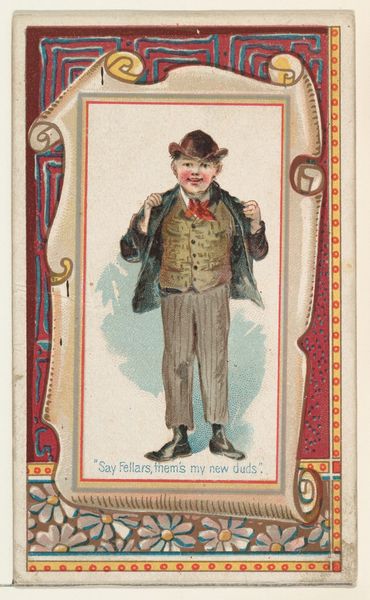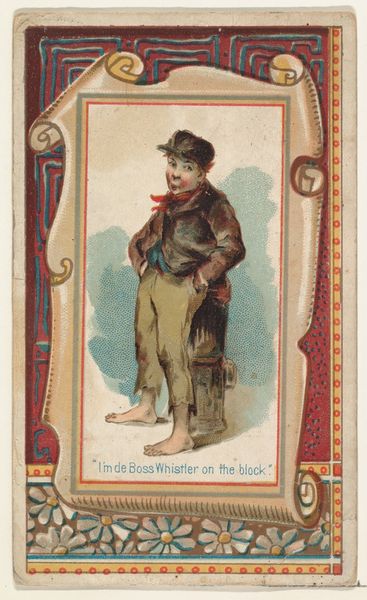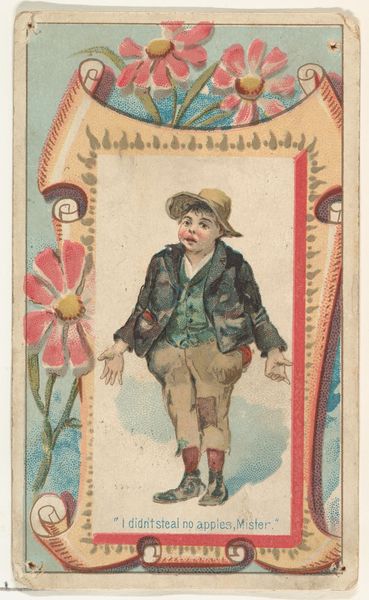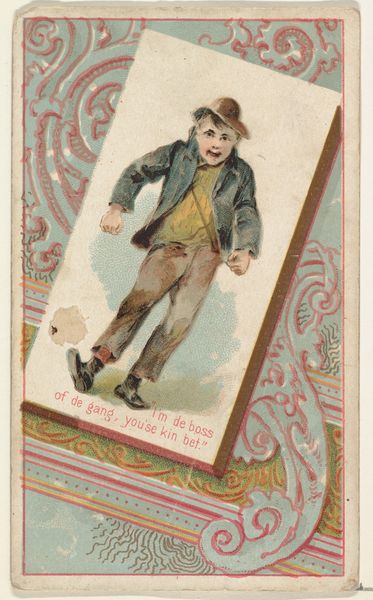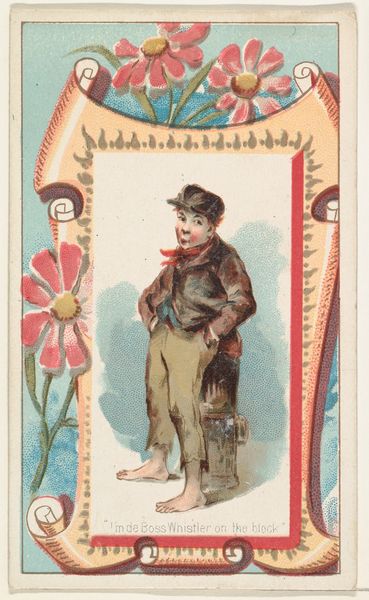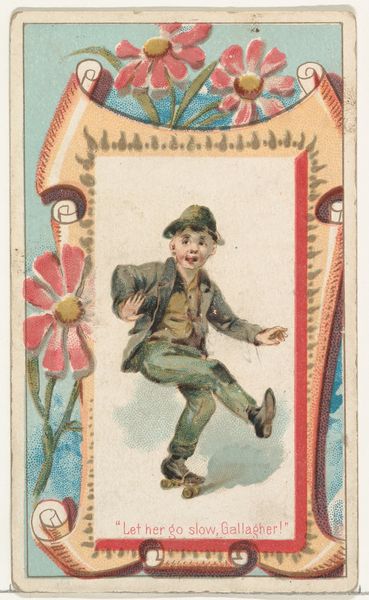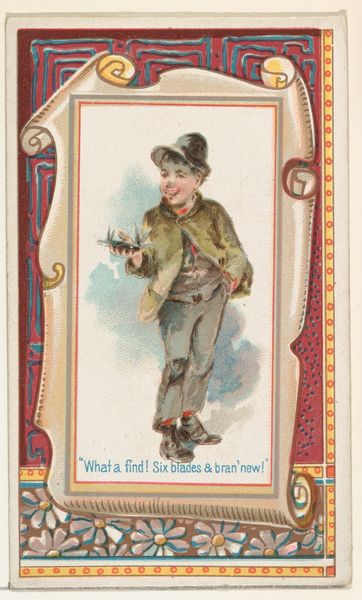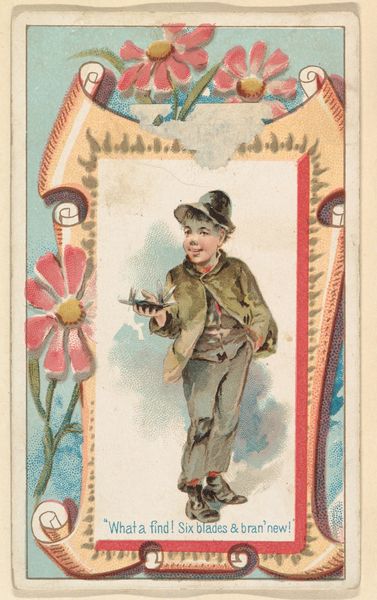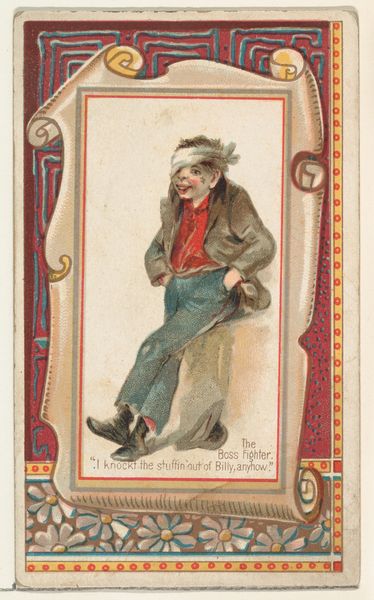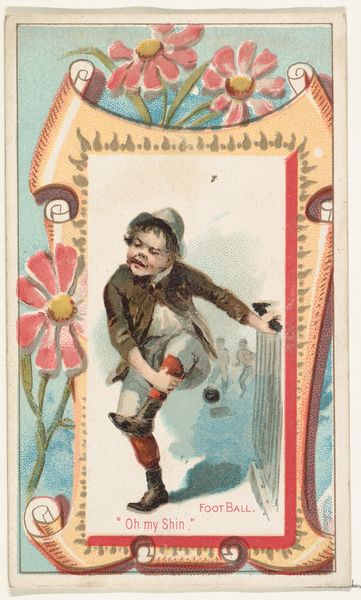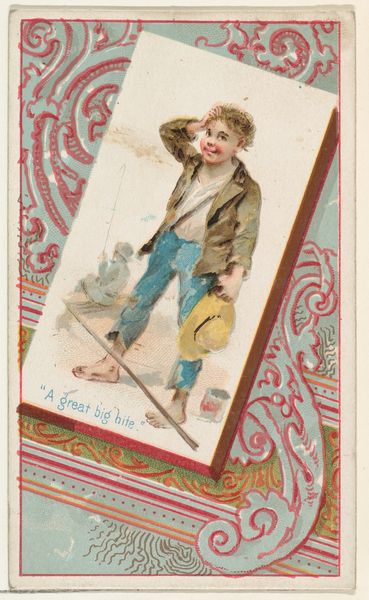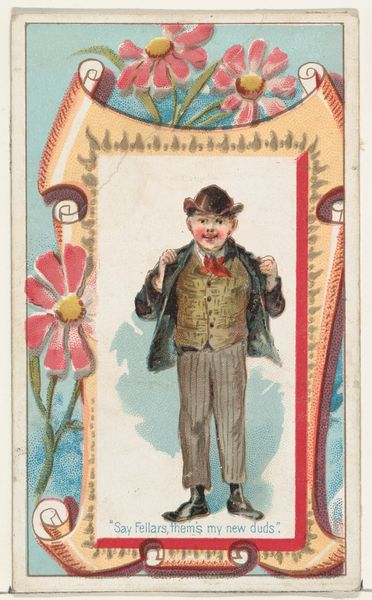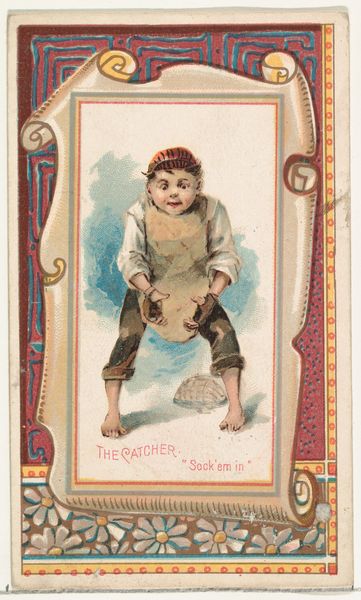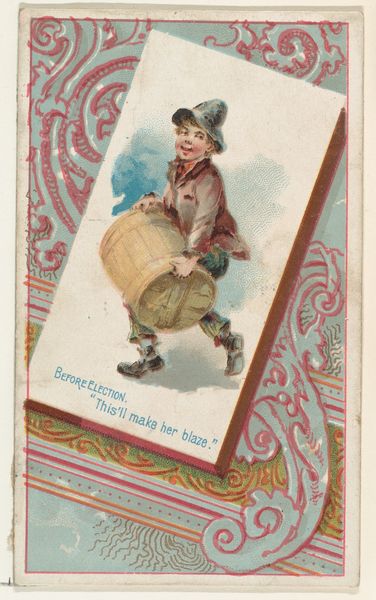
"I didn't steal no apples, Mister," from the Terrors of America set (N136) issued by Duke Sons & Co. to promote Honest Long Cut Tobacco 1888 - 1889
0:00
0:00
drawing, coloured-pencil, print
#
portrait
#
drawing
#
coloured-pencil
#
narrative-art
# print
#
impressionism
#
boy
#
coloured pencil
Dimensions: Sheet: 2 3/4 x 1 1/2 in. (7 x 3.8 cm)
Copyright: Public Domain
Editor: So, this print, "I didn't steal no apples, Mister," from around 1888, was created by W. Duke, Sons & Co. as part of their Terrors of America set, printed to advertise Honest Long Cut Tobacco. The boy's expression... it feels so vulnerable. His upturned palms almost beg for understanding. What strikes you about this image? Curator: The image’s power resides in its engagement with archetypal innocence and societal mistrust. Note the boy's stance – open palms, averted gaze. These are age-old symbols of supplication and honesty, yet they’re juxtaposed against the backdrop of the "Terrors of America." Why 'terrors'? Were children viewed differently then? How might class distinctions play into perceived criminality, particularly when linked to something as seemingly harmless as apples? The framing is crucial too, the decorative swirls and bright colors belie a deeper narrative about societal anxieties. Editor: That’s interesting! I hadn't considered how the framing creates this dissonance with the perceived 'terror.' Is that something deliberately done to catch your eye for advertising? Curator: Precisely! Advertising leverages pre-existing cultural narratives. The choice of a child evokes empathy, making the viewer question assumptions. But it simultaneously reinforces a power dynamic: who has the right to accuse, and who is believed? Consider the era - industrialization, urbanization. Traditional family structures were shifting; anxieties about morality and innocence were heightened. This simple image becomes a loaded commentary on the era’s psychological landscape. The symbolism makes it more than just an advertisement, wouldn’t you agree? Editor: Definitely! It's unsettling how much is packed into this small card. It's forced me to think about the social landscape it came from, rather than just seeing it at face value. Thank you. Curator: My pleasure. Every image is a repository of stories waiting to be unlocked!
Comments
No comments
Be the first to comment and join the conversation on the ultimate creative platform.
